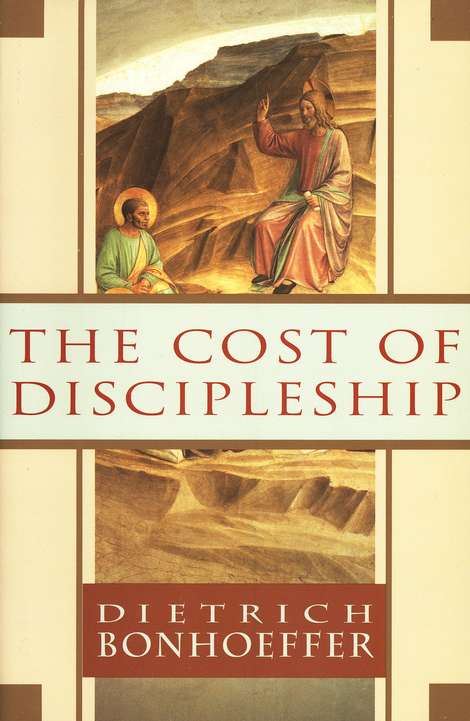
I’m writing a novel (tentatively titled Life In The Margins). It’s about sex, murder and systematic theology. Seriously. I’m offering a romp through the world of systematic theology, presenting it unto others as I wish it had been presented unto me. I play up the juicy bits (the relationships between Karl Barth and his assistant, & between Thomas Merton and his nurse), and play down the boring parts (is Jesus homousious with God?) The main character is a grad student at a Jesuit seminary within an ecumenical community (much as Regis College functions within the Toronto School of Theology). She has a rich fantasy life, imagining herself as Mary Magdalene at the foot of the cross, the martyr Perpetua being kicked to death by a mad cow, Joan of Arc turning toasty at the stake, etc. Along the way, she entertains a (Protestant) fantasy about a dinner when a young Dietrich Bonhoeffer came to the home of an older Karl Barth. Although I have no evidence to support it, I believe Barth’s assistant, Charlotte Von Kirschbaum, was present while Barth’s wife served the threesome.
The problem is: if I’m going to write convincingly about theologians, then I need to read a lot of theology. And if I’m going to write about an incident involving Dietrich Bonhoeffer, then I need to read a lot about Dietrich Bonhoeffer. And so I took up The Cost of Discipleship.
I’ve discovered that there are two kinds of research: cheap research, and costly research. Cheap research gives you a working vocabulary so you can satisfactorily fudge things when you’re writing your novel. Costly research forces you to internalize the words, make them your own, inhabit the mental and emotional space of your subject matter. Costly research will make your writing more convincing, but good god, it’s time consuming! For all the extracurricular reading I have to do, I could be writing a doctoral dissertation.
One of the challenges of Bonhoeffer’s book is that it lies on the other side of an important divide. Keep in mind that my main character is a young woman conversant in the feminist theologies that arose in the 70’s and 80’s. Bonhoeffer lived on the other side of the feminist divide. How is a feminist grad student working in the 21st century supposed to respond to Bonhoeffer’s short chapter titled “Woman”?
“Woman” belongs to a series of chapters that comment upon the Beatitudes, in this case, Matt. 5.27-32. It’s the well-known passage in which Jesus says that a man commits adultery just by looking at a woman with lust in his heart. (Consider me guilty, with apologies to my wife.) Jesus goes on to say that even divorcing a woman turns her into an adulteress.
Bonhoeffer starts his mercifully short commentary by observing: “Adherence to Jesus allows no free rein to desire unless it be accompanied by love.” So far so good. But if we lose sight of this statement, the rest of his commentary becomes thoroughly murky. He goes on to present a paradox (typical for him). How are we supposed to interpret these words? he wonders. Do we take Jesus literally or figuratively? The answer, he says, is that we must be obedient to both, since neither approach on its own is adequate. We fulfill that obedience, he says, if we hold our gaze fixed on Jesus. And then comes the critical phrase, the only phrase of the chapter that includes the word woman: “If they [the disciples] do that he knows that their gaze will always be pure, even when they look upon a woman.” Is this misogyny? Is man the theologizing mind and woman a mere temptation?
The dinner encounter I’m writing about actually occurred. Bonhoeffer records it in his diary. By that time, Charlotte Von Kirschbaum had moved into Barth’s household. She must have been present at the dinner. Certainly she would have wanted to participate in the conversation. She was an accomplished theologian in her own right and had publications to her credit, most significantly a volume titled The Role of Women (1949). Nevertheless, Bonhoeffer made no mention of her in his diary entry. I wonder if the reason he made no mention of her was that his eyes were so fixed on Jesus that the real woman right in front of him didn’t exist. I wonder, too, if that experience, or something like it, provided the motivation for Kirschbaum’s book.
All of this is speculation, of course, but I’m allowed to speculate; I’m writing a novel, not a dissertation.